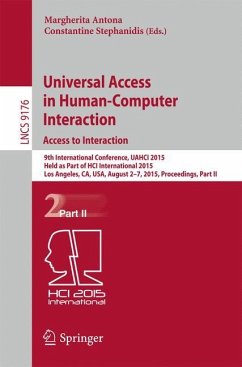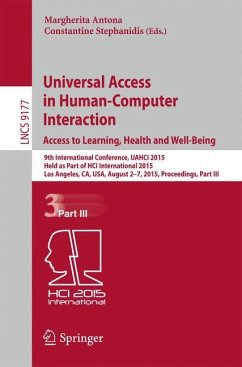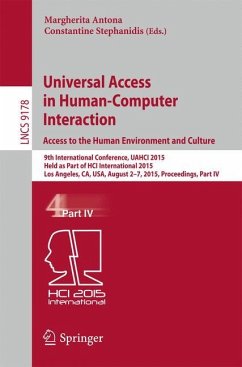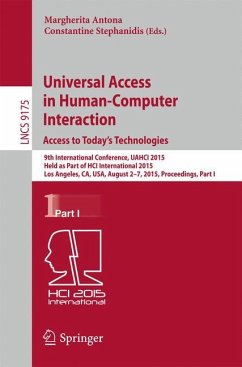
Human-Computer Interaction
Patient-Centred Culturally-Aware Design A'Sharqiyah University
Versandkostenfrei!
Versandfertig in 6-10 Tagen
36,99 €
inkl. MwSt.

PAYBACK Punkte
18 °P sammeln!
This research proposes to investigate the impact of a patient-centred culturally-aware design approach on the patient acceptance of e-Health web-based services, in particular, how e-Health web-based applications can be designed in a way that maximises their usability and 'fits' them into the cultural fabrics of individuals in different cultural contexts. To address this challenge, this research work examined existing literature in the fields of culture, technology acceptance and HCI, and identified relevant constructs that were used to develop a culturally-aware technology acceptance model for...
This research proposes to investigate the impact of a patient-centred culturally-aware design approach on the patient acceptance of e-Health web-based services, in particular, how e-Health web-based applications can be designed in a way that maximises their usability and 'fits' them into the cultural fabrics of individuals in different cultural contexts. To address this challenge, this research work examined existing literature in the fields of culture, technology acceptance and HCI, and identified relevant constructs that were used to develop a culturally-aware technology acceptance model for electronic health. Subsequently, the model provided a means for understanding the influence of different factors affecting patient acceptance and usage which were used as a foundation to inform the design of the Patient-Centred Culturally-aware e-Health Design Approach (PCCeDA) framework. The novelty in PCCeDA is the notion of cultural awareness, which allows systems to personalise themselves according to a patient's cultural profile while adhering to usability principles.












